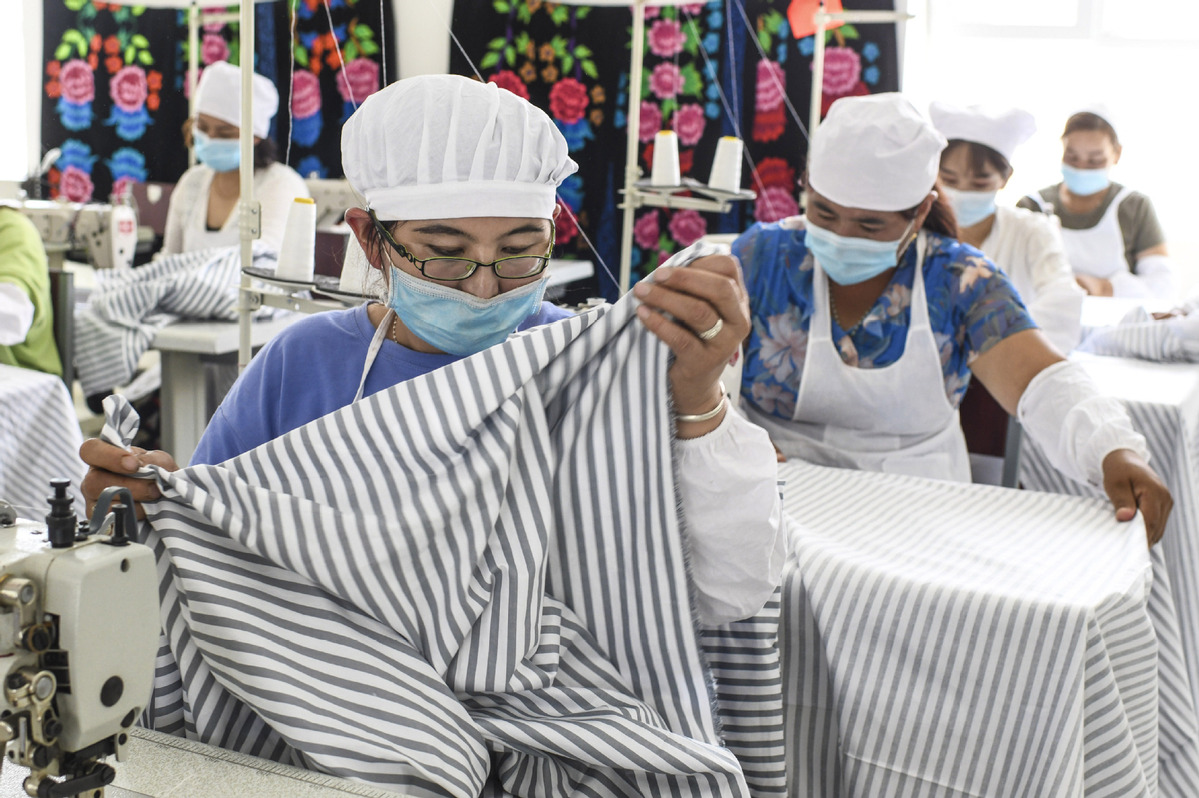Workers' rights safeguarded in Xinjiang


Experts praise paper on labor protections for highlighting benefits for all in region
China has shown its strong commitment to safeguarding people's lawful rights to work in the Xinjiang Uygur autonomous region, and everyone has largely benefited from these employment policies, international experts said in response to a newly issued white paper.
The document, "Employment and Labor Rights in Xinjiang", was published on Thursday by the State Council Information Office, which highlighted the significance of job security for ensuring people's rights to work, which improves their living standards, while promoting social harmony and stability in Xinjiang.
The document is "a timely response to some Western media outlets that are maligning China with regards to its employment and labor laws" in the area, said Talat Shabbir, director of the China-Pakistan Study Centre at the Institute of Strategic Studies in Islamabad.
"The paper shows that China is committed to people-centered development, attaches great importance to job security, gives high priority to employment, and pursues a proactive set of policies on employment."
The white paper said that from 2014 to 2019 the number of people employed in Xinjiang rose from 11.35 million to 13.3 million, up 17.2 percent, with a steady increase in their incomes.
"China's white paper stipulating its policies in improving employment and protecting labor rights in Xinjiang is a welcome step," said Shabbir, adding that the paper "highlights China's commitments to international labor laws and conventions".
Shabbir said China's measures for safeguarding employment are very important for economic recovery and people's well-being as the country recovers from the impact of the coronavirus pandemic.
"In the wake of COVID-19, China has offered a successful model to the international community through its quick and effective response to control the pandemic," Shabbir said.
"Through a strong coordinated mechanism with the local government (in Xinjiang), China has ensured a dynamic salary-growth mechanism for employees."
Veronika S. Saraswati, convener of the China unit at the Center for Strategic and International Studies, a think tank in Jakarta, said it is appropriate for China to improve people's education and work skills in Xinjiang.
Referring to the white paper, Saraswati said economic stability is the basis of a prosperous society and the well-being of its people. "The people-centered philosophy of development has been the Chinese government's focus since the founding of the Communist Party of China in 1921. I am deeply impressed by China's mentioning this principle in the white paper, as it shows consistency," Saraswati said.
"Xinjiang has suffered from terrorism and separatism, which have nothing to do with religion but are pure political issues (regarding China's sovereignty and security). China has done the right thing to tackle these problems."
People-centric approach
Christopher Bovis, professor of international business law at the University of Hull in England, said the white paper demonstrates China's willingness to apply international labor law and human rights standards for Xinjiang.
The policies showed that China has put a people-centric approach to economic relations at the heart of economic development, he said.
The protection of labor rights by reference to international norms and standards will "improve the employment environment" and create better jobs, which will "enhance the quality of lives and standard of living in Xinjiang", Bovis said.
Shadrack Kuyoh, a legal and policy adviser at the Africa Policy Institute, an independent think tank in Kenya, shares these views.
Kuyoh said Xinjiang has "taken bold steps" to eradicate social upheavals as well as prioritize the protection of citizens' rights to work and sustainable employment within the bounds of human rights.
Xinjiang's policies, ranging from the protection of women's rights and interests to the need to safeguard labor rights and interests, have led to "an augmented and sustainable employment" situation for the people of the region.
"This is attributable to China's framing of the white paper, which is in line with the Constitution of China and an international legal framework that values and protects fundamental human rights within the labor market," Kuyoh said.
"As part of China's commitment to eradicate poverty through socioeconomic inclusion, the policies have certainly achieved major milestones in creating employment and ensuring equal right to work."
Kuyoh cited the creation of 480,900 new jobs in 2019 alone, with women taking up 228,100 of these positions. Their share equates to 47 percent of the new jobs.
"This data comfortably highlights the progressive nature of these regulations," Kuyoh said.
"A good legal and policy framework goes hand in hand with a functional institutional framework. Xinjiang's institutional framework on labor and human rights is well structured to implement the policies within the required standards of effectiveness, justice and fairness."
Liu Hongjie and Liu Xuan in Beijing contributed to this story.
































